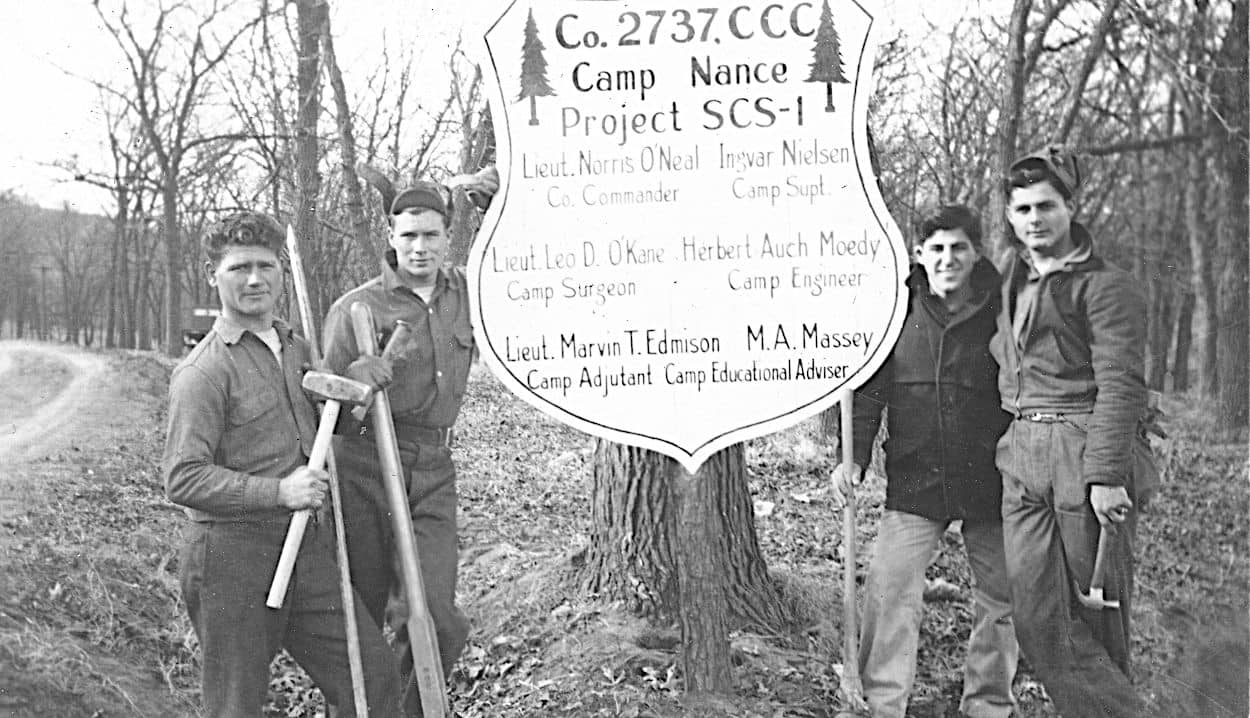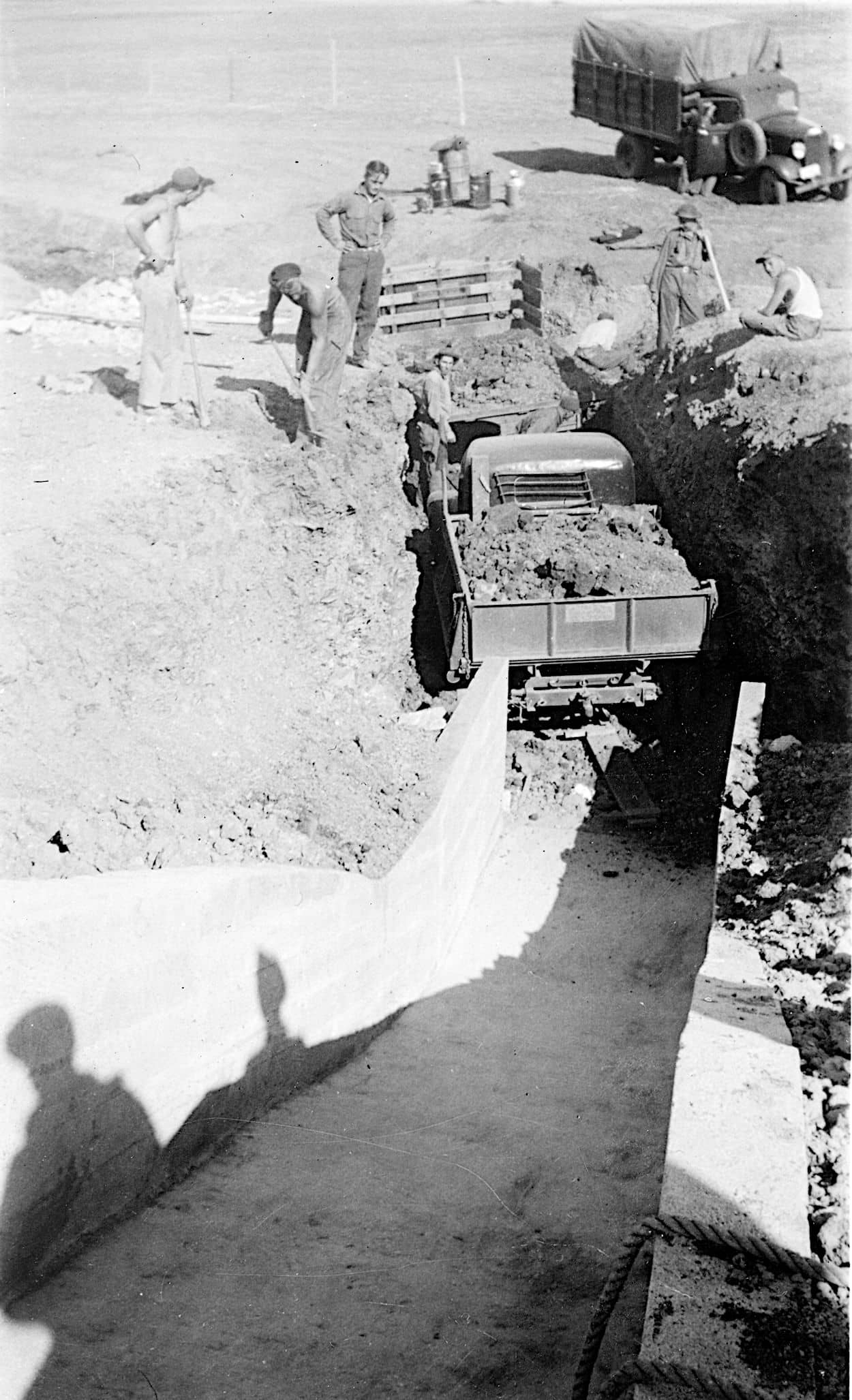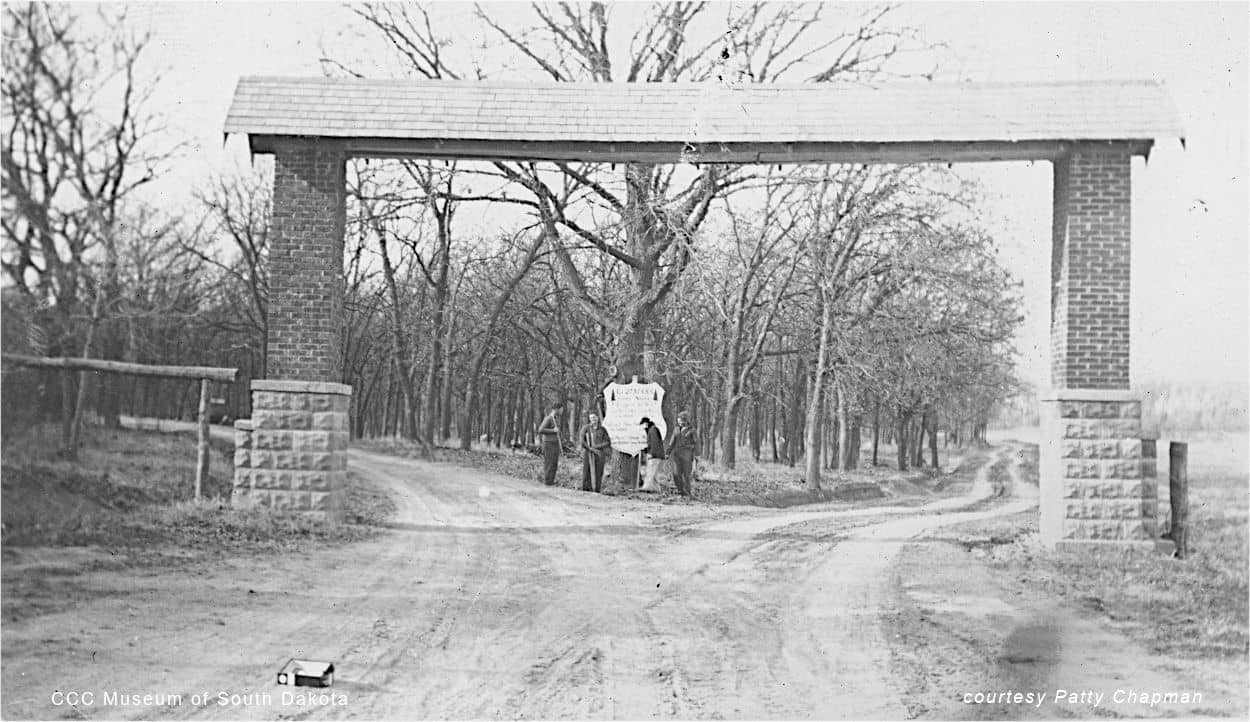Category: donation

Company 2737
The photos on this page are from the large Cleo Ames collection.
History of Company 2737 taken from 1937 Nebraska-South Dakota District Annual.
Company 2737 was organized as a drought relief company in July, 1934, when a cadre was sent from the original Company 755, Albion, Nebraska, to Fullerton, Nebraska, in the charge of Lieuts. R. B. Lindskog and H. O. Danrot. Tents were occupied on the Fullerton. Chautauqua grounds until permanent buildings were ready for occupancy.
Capt. George W. Stout was the next Commanding Officer, serving until October, 1935, when Lieut. Norris P. O'Neal took charge and stayed until May, 1936; he in turn being succeeded by Capt. Francis M. Van Wormer. Lieut. Leo D. O'Kane was the first regular Medical Officer, and served until August, 1936, when Lieut. Ervin Grossman was assigned to the company. Lieut. Grossman stayed until October, 1936, and was followed by Dr. F. W. Fletcher, Contract Surgeon.
In the fall of 1934 Howard M. Van Sickle, enrollee, was appointed Assistant Educational Adviser, and carried on the educational activities that winter and the following summer. In August, 1935, M. A. Massey was appointed Educational Adviser.
On April 28, 1936, the company moved from Fullerton, Nebraska to Presho, South Dakota, where it lived in tents all summer, and did soil erosion work. On October 15, 1936, the company was returned to Nebraska, being sent to Hartington, where it resumed the same type of work.

The name of the company has changed three times since it was organized, the first name being Camp Nance. When the company moved to South Dakota, Camp Lyman was the name given it, which gave way to Camp Cedar on October 15, the day the company came to Cedar County, Nebraska.
One events of heroism stands out vividly in the minds of many members of the company when on the night of July 29, 1934, two enrollees, George Barno and Bert Ziegler, rescued a twelve-year-old Fullerton youth from the treacherous waters of the Loup River. In the summer of 1936 different crews of the company were called out to fight prairie fires in South Dakota, and won considerable praise for their efforts in those activities. During the severe winter months of 1935-'36, when all roads were piled high with snow, the members of the company rendered unusual service to the Fullerton community by digging out roads, making it possible for doctors to call on their patients, for undertakers to get through, and for stranded people to get relief. Many members spent much time building bird shelters and feeding thousands of starving birds.
During the winter of 1936-'37, while roads in the Hartington region were badly blocked, the company was called upon for assistance to the community, and helped by opening roads, building bird shelters, and feeding the birds.
On February 16, 1937, the members of Company 2737 staged an athletic carnival, and turned the proceeds over to the local chapter of the Red Cross, which in turn sent the money for relief of flood sufferers in the Central States. The last two weeks of June, 1937, were spent in rehabilitation work in a storm-swept area south-west of Hartington, where the company rendered outstanding service in helping farmers clear wreckage from their fields, burying dead live stock, and otherwise making it possible for normal community life to be resumed.
The company has distinguished itself in other ways, and particularly has it become well known for the good sportsmanship of its athletic teams. This characteristic received recognition on September 20, 1936, when the baseball team was awarded the trophy for "Good Sportsmanship" at the baseball tournament held for CCC teams of Eastern South Dakota at Huron. In March, 1937, a company chorus presented a program over radio station WNAX, Yankton, South Dakota. Camp Cedar Chronicler, published each month, has consistently won high ratings from Happy Days, national CCC journal, and officials of the Seventh Corps Area, and the Nebraska-South Dakota District. In May, 1937, a letter was received by Capt. Francis M. Van Wormer, Commanding Officer, from Maj. Gen. Stanley H. Ford, Commanding Officer of the Seventh Corps Area, commending the company for going 109 days without a lost-time accident. The 1936 baseball team won sixteen games, lost 3, and tied one, playing against some of the best amateur teams of South Dakota.
A number of the company's former members have gone on to school, where they have made excellent records; others have secured positions and are making good in the industrial and business work. Several will leave this fall to enter school or take jobs.








